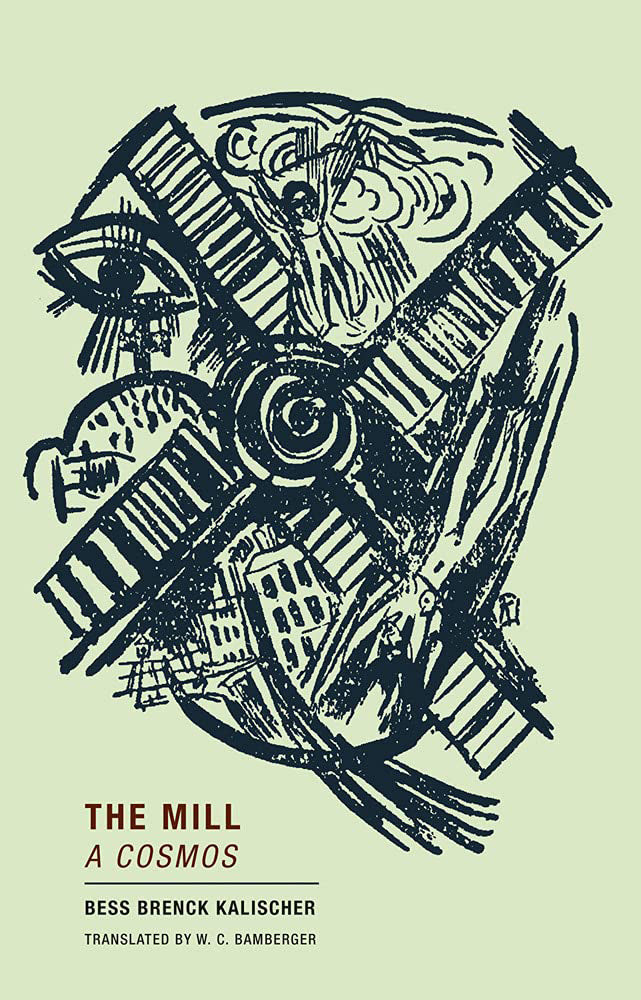The Mill: A Cosmos
The Mill: A Cosmos
Bess Brenck Kalischer
Couldn't load pickup availability
Translated, with an introduction, by W. C. Bamberger / September 2021 / 4.5 x 7, 88 pp. / 978-1-939663-71-9
Bess Brenck Kalischer’s only work of prose was first published in German in 1922 and is translated here into English for the first time. Narrated by a woman being held in a sanitarium after having suffered a mental breakdown, The Mill is less a novel than a rhythmic, hallucinatory, and fractured sequence of prose poems. On its publication, the German author Mynona described it as “more a mill, a cosmos flower, a lyricism and romantic spell than it is a ‘novel.’” Shifting from pedestrian concerns to cosmic visions, from the setting of a basement mushroom farm to scenes on Sirius, from lying restrained on a bed to lying in a coffin made of moonbeams, Kalischer’s narrator weaves together literary satire, anguished dream states, and shifting forms of subjectivity. Woodlice and snails become protagonists, apes and a camel engage in philosophy, lucid analysis slips into suffering or joyous exaltation, and the narrator transforms alternately into a mouse-muse or a pillar in a mausoleum. As much Maldoror as Munchausen, Christian as Canaanite, The Mill describes an unstable journey to psychic restoration that is as radically experimental today as when it was first published a century ago.
Bess Brenck Kalischer (1878–1933) was born Betty (possibly Elizabeth) Levy in Rostock, Germany. Though she published her first poems in 1905, she began to make a name for herself as part of the second generation of German expressionists in Dresden, cofounding the Expressionistische Arbeitsgemeinschaft Dresden (Expressionist Working Group of Dresden) alongside Conrad Felixmüller (whose woodcut portrait remains the only visual record of her). Later relocating to Berlin, she was a friend and colleague of Salomo Friedlaender/Mynona, who used her as a model in several stories and three novels. She died of a “nervous disease” in 1933, her grave left without a headstone until 2014.
Press
“Beneath the roiling onslaught of bizarre imagery and playful reference, Kalischer’s novel is a striking and unique work, a novel that used fantastical and speculative elements in new and playful ways. W. C. Bamberger’s translation does a fantastic job of wrangling a particularly strange and confounding text, and his notes are very helpful in terms of highlighting the novel’s many and varied allusions, and his extensive introduction is crucial in setting out the author and novel’s historical and social context.”
—Jonathan Thornton, The Fantasy Hive
“The Mill is a smirking sphinx, packed with wisdom that remains partly obscured by Magic Eye puzzle of symbolism, fairy tale references, and outer space.”
—Justin Stephani, Full Stop


